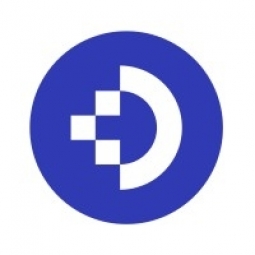Customer Company Size
Mid-size Company
Region
- Europe
Country
- Germany
Product
- DocuWare
Tech Stack
- Microsoft SQL server
- Dell Power-Edge 2650 server
- Windows 2000
Implementation Scale
- Enterprise-wide Deployment
Impact Metrics
- Productivity Improvements
- Customer Satisfaction
Technology Category
- Application Infrastructure & Middleware - Data Exchange & Integration
Applicable Functions
- Business Operation
Services
- System Integration
About The Customer
Bibliographisches Institut & F.A. Brockhaus AG, or BIFAB for short, is a publishing house based in Mannheim and Leipzig, Germany. The company is known for its dictionaries and encyclopedias, including the Großer Brockhaus and the Meyer brand. In 1984, Germany’s two most traditional and successful dictionary publishers merged to form BIFAB. The company has around 230 staff at its head office in Mannheim and over 40 at the Leipzig branch who work on editing and publishing encyclopedias, dictionaries, reference works, atlases, books for children and young people, infotainment, and educational literature.
The Challenge
Bibliographisches Institut & F.A. Brockhaus AG (BIFAB) had a wealth of information stored in various formats, including card indexes, contracts, historical publishing bibliographies, and readers’ queries. However, this information was not easily accessible to all staff members, and searching for specific information was time-consuming and inefficient. The company’s contracts were kept in the management office, and searching for a contract involved at least two members of staff. Searching for information in the historical publishing bibliographies was also extremely time-consuming, as it involved carefully removing the very old and sometimes very delicate volumes from their shelves. The large number of readers’ queries, which were filed with the answering letters, was getting out of control. The company needed a solution that would make all necessary information available in a secure, simple, fast, and transparent manner.
The Solution
BIFAB implemented DocuWare, a document management system that electronically archives and stores all necessary documents in a shared, central document pool. The data is stored in four separate archives (documentation, historical publishing bibliographies, readers’ queries, and contracts). With the exception of documents that have to be scanned, editors can now store their own information in DocuWare, and carry out full-text searches. New information is entered by four staff trained to use DocuWare and amounts to about 50 documents per week. Scanned contracts and other information are imported on two workstations running the original DW interface. All other staff access the archive over the Internet using a browser. When accessing the contract database, all authorized users can freely modify the information data in the contract info box, and make additions or correct errors. The scanned contracts are protected to ensure that they cannot be modified. Even the historical documents and books in the publishing bibliography have been scanned and can now also be searched from user workstations along with all other documents.
Operational Impact

Case Study missing?
Start adding your own!
Register with your work email and create a new case study profile for your business.







